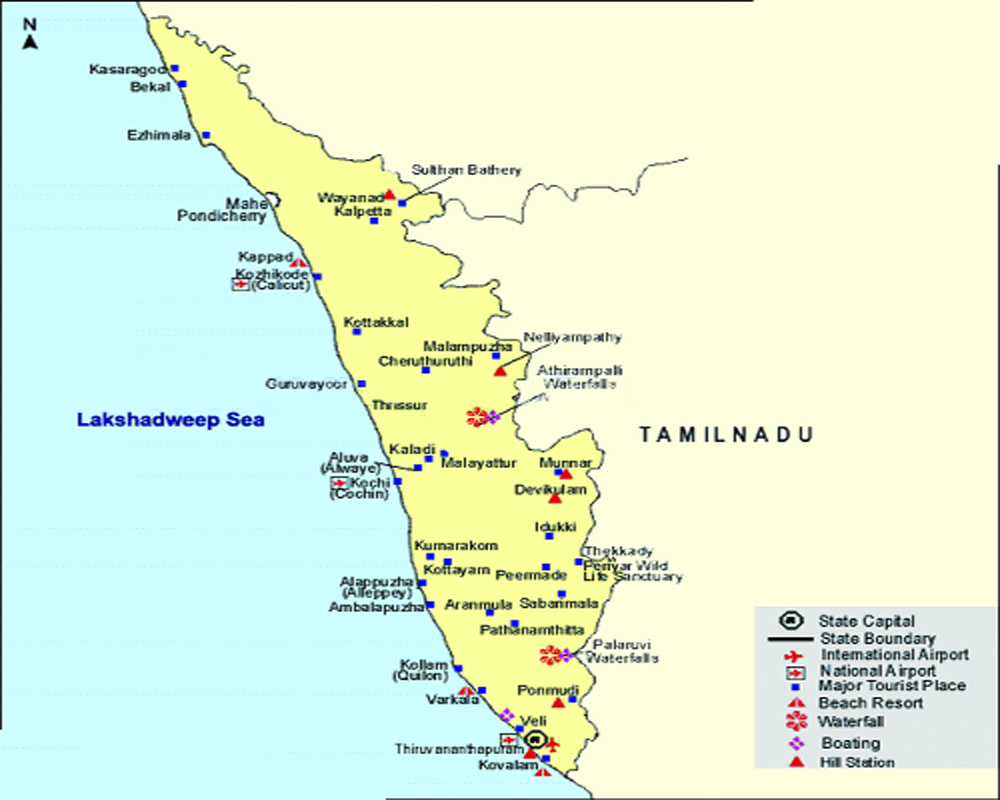Kerala struck by another ‘pandemic’ created by self-serving politicians and religious fanatics
Swami Vivekananda had described Kerala as a lunatic asylum after watching the casteism and communalism prevailing in God’s Own Country. If the monk returns to Kerala today, he would be in for further shock.
Kerala, reeling under the onslaught of Covid-19, has been struck by another ‘pandemic’ created by self-serving politicians and religious fanatics. The present controversy is over the 1921 Mappila Rebellion, the biggest communal pogrom witnessed in this part of the country.
The riots which erupted on August 21, 1921, claimed lives of over 2000 people who refused to change their religion. The year 2021 marks the centenary of this rebellion.
The Rebellion commenced under the garb of Khilafat Movement patronised by Muslim leaders to express solidarity with the Khalifa of Turkey who had lost his pre-eminent position as the guardian of the Muslim community at the end of the First World War.
Sir C Sankaran Nair, who has been the only Keralite to adorn the presidency of Indian National Congress and who was the member of the Viceroy’s Executive Council had alerted the leaders of the Freedom Movement that the Khilafat agitation has no relevance in India. But Mahatma Gandhi chose to support the movement hoping to enlist the support of Muslims in the freedom struggle.
But the Khilafat agitation took the shape of massive communal pogrom in the Eranadu and Valluvanadu regions of Malabar and saw the slaughter of Hindus who refused to convert to another religion. Congress leaders like late K P Kesava Menon and K Madhavan Nair who questioned the course of the agitation earned the wrath of the rioters and both of them had to make a quick retreat. Both Menon and Nair had in their memoirs described the agitation as a communal pogrom.
Rao Bahadur C Gopalan Nair, the then deputy collector, Malabar Province, had authored a book Mappila Riots 1921 in which he has chronicled the details. Nair writes with documentary evidences that the riot was blatantly communal.
The ruling CPI(M) claims that the Mappila Riot of 1921 was part of the freedom struggle. But they are evasive when asked why people who refused to convert were butchered.
“The Mappila Riot was accepted as part of the freedom movement only on December 5, 1981 by the Indira Government as part of a political accord between Congress and Muslim League,” said Prof C I Issac, eminent historian, who studied the riots in detail and submitted a report to the Government asking for the removal of the names of nearly 350 persons who have been listed as freedom fighters. “The name of Variamkunnathu Ahmed Haji, had not figured in the list of freedom fighters submitted by the Kerala Government and this was added later,” said the professor.
Issac further points out that in 1973, the then home minister had told Parliament that the Mappila Riots were not part of the freedom movement. Meanwhile, the Communists had succeeded in getting the Punnapra-Vayalar workers agitation of October 1946 the status of freedom struggle much to the anguish of historians. It was an uprising by the coir workers of Alappuzha district demanding hike in pay and was staged at a time when the leaders of the freedom movement were busy working out the modalities of transfer of power. Till the end of the Second Word War, the Communists were hand in glove with the British Government and even tried to subvert the Quit India Movement.
Annie Besant who toured the region in the aftermath of the riots wrote: “It would be well if Mr Gandhi could be taken into Malabar to see with his own eyes the ghastly horrors which have been created by the preaching of himself and his ‘loved brothers’ Muhammed and Shaukat Ali.”
The atmosphere in Kerala got vitiated with the Minister for Tourism Mohammed Riyaz announcing the construction of a memorial for Variankunnathu Ahmed in Malappuram. Adding insult to injury was the declaration by M B Rajesh, Speaker of the Legislative Assembly, that Variankunnathu Haji was a revolutionary like Sardar Bhagat Singh. The Pandora’s Box has been opened.
“Both the LDF and the UDF Governments have refused to instal a statue of Thunchathu Ezhuthachan, the father of the Malayalam language, in his hometown of Tirur citing religious sentiments. Then why is this special honour for a mass murderer?” asks Ali Akbar, move maker.
The centenary of Mappila Rebellion is a controversy that politicians could have avoided.
(The writer is a senior journalist. The views expressed are personal.)

























